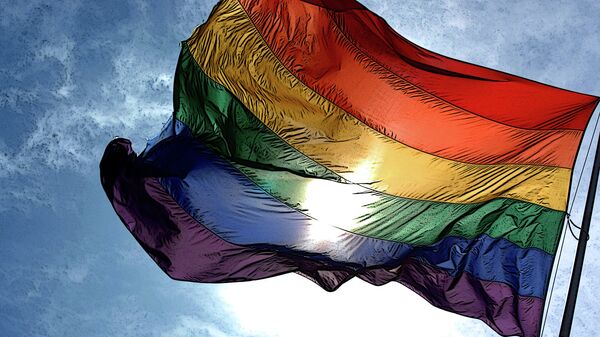The non-heteronormative inmates will be transferred to Irmã Imelda Lima Pontes prison situated on the outskirts of the state's capital Fortaleza, which can accommodate 200 people. Currently, there are 150 homosexuals imprisoned there, along with elderly prisoners and prisoners with disabilities.
The idea to organize a separate prison for GBT people was accepted because this part of population is usually vulnerable and they are not cared for properly in the framework of the prison system, Secretary of Justice and Civil Rights of Ceará Hélio Leitã told Sputnik in an exclusive interview.
"Typically, the GBT population isolates itself from all the other inmates. In prisons, GBT often become victims of violence, and they are always under threat," Hélio Leitã said.
"Thus, our experience can be called innovative, and it is not large yet — only 150 people from 17,000 GBT in our state. We are trying to fight for a more humane prison system. We are not naive romantics: we clearly understand that these people committed crimes and pay the price of their freedom for what they have done. But they are also the bearers of rights and guarantees which must be respected by the state," the expert added.
"We have a shared experience with other states. Our doors are open to guests and representatives of other states' prison systems, and I think that our experience will be well distributed," he said.
"Brazilian LGBTT movement has long been fighting for a special law, for example, for transgender and transvestites whose gender identity is often not respected within the prison system. Having a place where these prisoners have a guarantee of security and human respect is very important. This is a very important initiative," Dediane Souza told Sputnik in an exclusive interview.
"The violence in ordinary prisons can be very different: from the collective rape and unrecognition of gender identity of these people, to the refusal to treat people suffering from AIDS. There is a whole variety of rights violations, to which these people are exposed within the prison system. State is obliged to protect the dignity of these people within the system," the activist said.
Ideally, it is necessary to discuss civil rights in general, not just for people who are in prison, but for all the people who daily face infringement of their rights, she suggested.
"Murder rates of the LGBTT people in Brazil are very alarming. It is necessary to fight for the public policy, which would include civil rights discussion. This project solves the extreme problem, but not the whole problem. We are not fighting for creating of LGBTT prisons, but we believe that the state should accept such extraordinary measures to reduce rights violations in prisons," Souza concluded.




